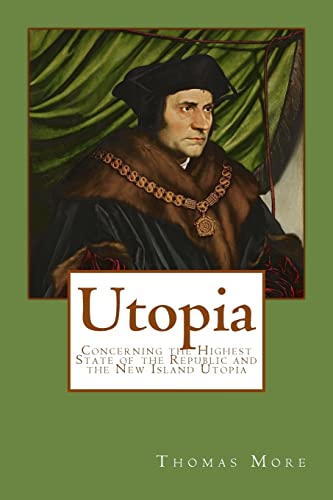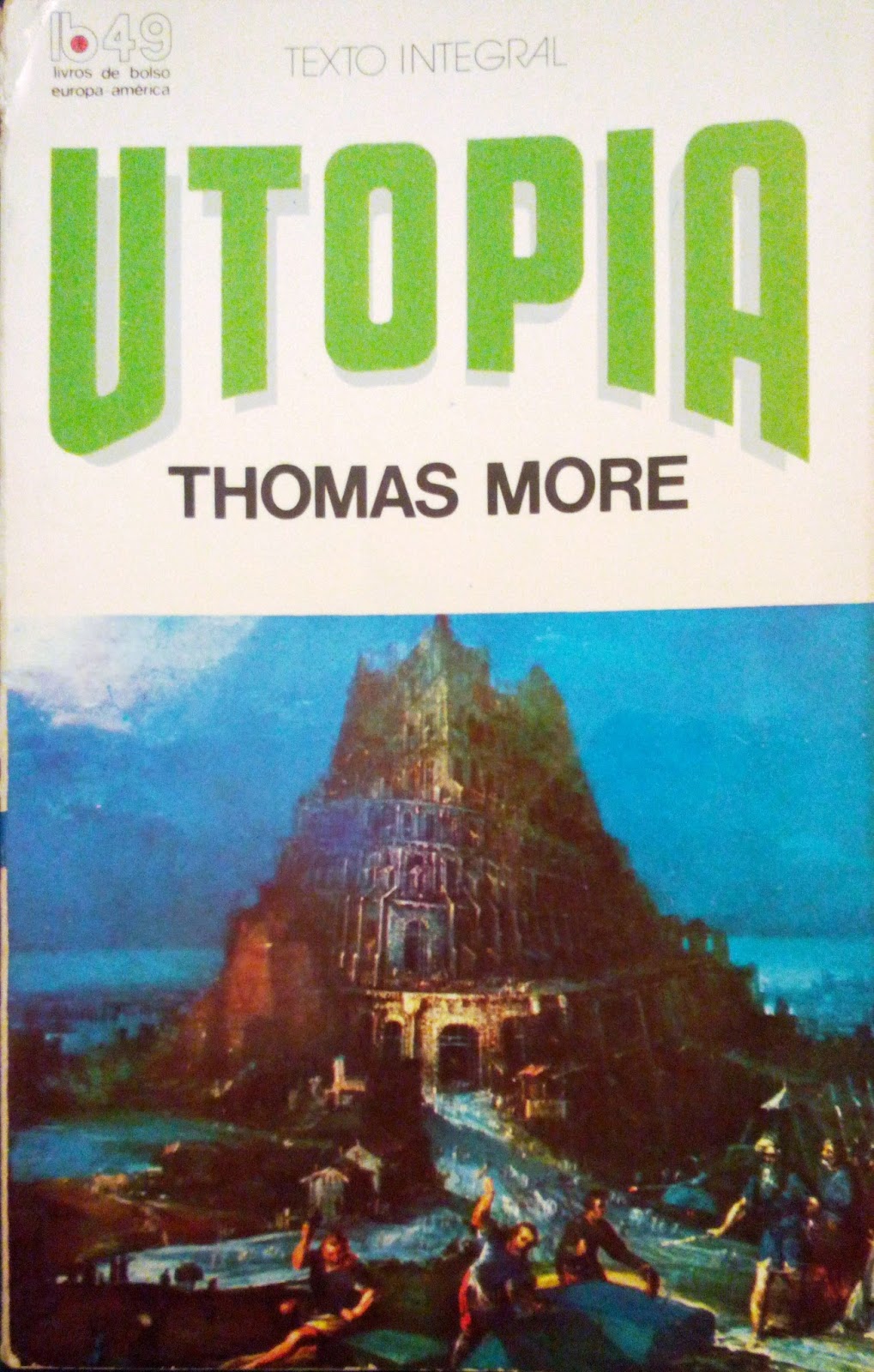
Raphael's interlocuteur, Thomas More, replies that he thinks the opposite: you can never have prosperity where all things are held in common because everyone will give up working, "the prospect of turning a profit will not act as an incentive." (p.87) And when the need does arise, noone will be allowed to keep what they've produced, leading to conflict and bloodshed. Wherever you have private property, he says, and when money is the measure of all things, you cannot have a just and prosperous society, because a tiny number of people will always end up sharing the whole lot among themselves while everyone else is left in poverty.


He argues that the institutions of the island of Utopia are the best: they have few laws, and the laws they have govern exceedingly well everything is shared equally and everyone is prosperous. A better punishment, he says, would be to require the thief to return the item stolen or to make up the value through hard labor or other means. He then recounts some of the injustices he encountered there, including the capital punishment of thieves, a punishment which he feels is too harsh for the crime of theft and doesn't deter future thefts - instead, it's better to ensure everyone has enough to eat so they won't steal (property should be redistributed and rich should be prevented from monopolizing commodities and control of prices). It describes the ideal society of the fictional island of Utopia:īook 1: Raphael tells how he's visited many societies around the world, including England. Thomas More's Utopia was published in 1516 in Latin. The Soviet Union honoured him for the Communistic attitude toward property rights expressed in Utopia. Pope John Paul II in 2000 declared him the "heavenly Patron of Statesmen and Politicians." Since 1980, the Church of England has remembered More liturgically as a Reformation martyr. Pope Pius XI canonised More in 1935 as a martyr. After refusing to take the Oath of Supremacy, he was convicted of treason and beheaded. More opposed the King's separation from the Catholic Church, refusing to acknowledge Henry as Supreme Head of the Church of England and the annulment of his marriage to Catherine of Aragon. He also wrote Utopia, published in 1516, about the political system of an imaginary ideal island nation. More opposed the Protestant Reformation, in particular the theology of Martin Luther and William Tyndale. He was a councillor to Henry VIII and also served as Lord High Chancellor of England from October 1529 to.

D.Sir Thomas More (1477-1535), venerated by Catholics as Saint Thomas More, was an English lawyer, social philosopher, author, statesman, and noted Renaissance humanist. Keywords: Utopia Theory Political philosophy Ethics Philosophy Utilitarianism Thought Original intent Idealism Humanism Freedom and Culture Self-sufficiency Morality Institution Ideal type Sophistication Contextualism Grand theory Spirituality Imperialism Consideration Realpolitik Relativism Renaissance humanism Scholasticism Consciousness False pleasure Self-interest Adage Invention Holism Verisimilitude Self-Reliance Principle Tu quoque Pacifism Egalitarianism Common good Aristotle Hedonism Potentiality and actuality Honour Francisco de Vitoria Policraticus Normative Leveling (philosophy) Summum bonum Epicureanism Sovereignty Politique Optimism Secular humanism Suggestion Explanation Precedent Moral example Superiority (short story) The Praise of Folly Determination Indulgence Sophist Contemporary society Manifesto Seriousness Originality Ruler Stoicism Quintilian Critias Practical reason Modernity Venality Republic (Plato) Humanitarianism Of Education City-state W.
#Utopia thomas more david wootton professional#
Audience: Professional and scholarly College/higher education.


 0 kommentar(er)
0 kommentar(er)
